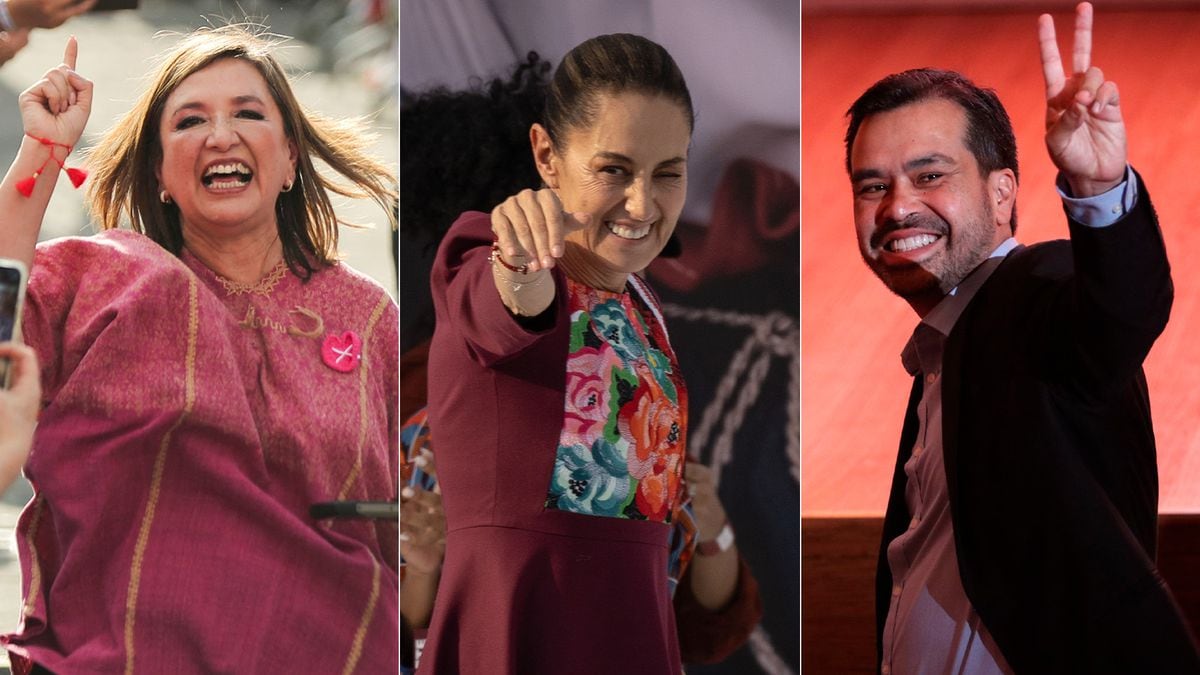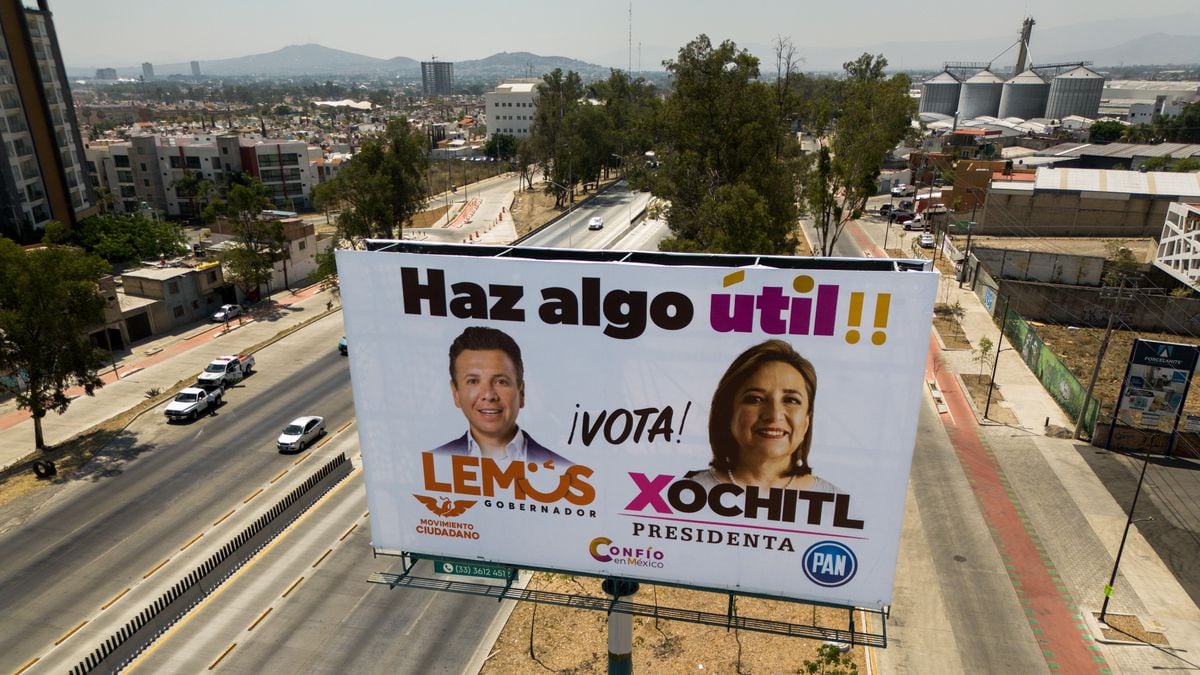When the session of the Congress of Deputies began this Tuesday, the Mexican government already knew that it would lose the vote on the constitutional electoral reform that was scheduled.
To pass the president's original project they needed two thirds of the total votes, a number that they do not have without the support of one of the opposition parties, which had already positioned themselves against it.
To avoid the image of defeat, the National Regeneration Movement (Morena) proposed a second strategy: to present an alternative project, the so-called plan B, which modifies only secondary laws, for which they only needed the simple majority that they already have.
But the process had to be carried out in record time, because the legislative period ends on December 15.
The Government then appealed to a legal tool, the waiver of paperwork,
About 11 in the morning on Tuesday, the session of Congress was to begin.
Instead, a visit from the Secretary of the Interior, Adán Augusto López, kicked off the legislative table of the day.
The right hand of Andrés Manuel López Obrador came to the lower house with seven initiatives that made up the president's plan B.
While the documents were entered to be processed that same day, the secretary met behind closed doors with his parliamentary group to explain in broad strokes what those 307 pages contained.
There was no time for them to read them, not even for them to debate it in commissions.
The project had to be presented and approved in a matter of hours.
In private, some Morena deputies complained about having to endorse an initiative that they had not even been able to read.
In public,
The PRI gave Morena the support she needed to get the matter dealt with that same day.
“They asked that the constitutional reform be addressed at once because they had committed tomorrow [Wednesday],” says a source from Morena, who prefers to remain anonymous, “and, instead, they accepted that today [Tuesday] they would go up the full secondary laws”.
With the debate on the constitutional reform closed, which died with a majority vote against a united opposition —PAN, PRI, PRD and MC—, the government party began to execute its strategy to alleviate the defeat.
Morena then asked that the plan B project go through with a waiver of paperwork, to be debated and voted on that same day, and by having a simple majority he got it quickly.
The calculation, according to sources from the ruling formation, was designed so that the legislation would be approved this year and not have to wait until the next legislative period, and to "avoid the perception that the vote was lost" on this matter, they admit from the match.
Jorge Triana Tena and other PAN legislators protested carrying the phrase "Let Mexico speak" over their mouths. Mario Jasso (Cuartoscuro)
Around midnight, the opposition withdrew from the premises and left Morena alone with his allies from the Green Party and the Labor Party to carry out the second session.
Just at dawn, the ruling party presented the final project that was voted on an hour and a half later.
The opposition deputies followed the session from outside, in which only the positions of each group were established, and not a single minute was debated.
Many did not even return to the precinct to vote, they did so remotely through an application on their phones.
The project sent by the president that morning only suffered minimal modifications imposed by the allies of the government party, who asked to include details in exchange for their vote in favor.
With less than four hours of debate on one of the most important legislative issues of the six-year term,
"What they wanted was to level the score," says deputy Jorge Álvarez Maynez, from Movimiento Ciudadano, "so that tomorrow [Wednesday] there would be divided headlines and have a moral victory."
The halfway victory —or halfway defeat, depending on how you look at it— now leaves in the hands of the Senate a bill clearly marked by the government's intentions.
“Limits are established for the arbitrary actions of both the INE and the TEPJF [the Electoral Tribunal] regarding interpretations unrelated to the law that have limited freedom of expression, political-electoral rights, the self-determination of political parties, among others” , dictates one of the norms approved just days after the head of the Government of Mexico City, Claudia Sheinbaum, received precautionary measures from the electoral court for campaigning early.
The Government celebrated it by pointing out the greatest achievement under its optimum: the cut of some 3,500 million pesos to the National Electoral Institute.
“INE spending was reduced, because there were many offices, duplicates, and therefore an adjustment, integration and other expenses were made,” López Obrador said in his morning conference.
"It's something.
With the reform of the Constitution, the savings would have reached up to 15,000 million ”, he added.
The project that the Senate receives is "riddled with errors," says Senator Clemente Castañeda, coordinator of the Citizen Movement in that Chamber, due to a session "full of irregularities that violated the legislative processes" of Congress.
"The rush of Deputies should not be the rush of the Senate," says Castañeda, who assures that they will turn on the alerts if they are not given "enough time" to deal with this issue "that deserves it."
The minute will be sent to the Senate to find a way out before the end of the year.
There, he faces a more thorny situation, because the leader of the Morena parliamentary group and the main operator of the presidential initiatives, Ricardo Monreal, has spent the last few weeks on the brink of breaking with his bloc.
Monreal is also a defender of the idea that projects should be discussed with the opposition and not use the majority to approve them without further ado.
Along these lines, the Morenista senator has assured this Wednesday that Plan B will not pass with a shortcut in the Upper House.
In this way, the president's reform enters committees and could only be dealt with in plenary next Tuesday.
Its success or failure, some senators point out to this newspaper, will depend on the position that Monreal finally takes.
subscribe here
to the EL PAÍS México
newsletter
and receive all the key information on current affairs in this country
Subscribe to continue reading
Read without limits
Keep reading
I'm already a subscriber



/cloudfront-eu-central-1.images.arcpublishing.com/prisa/UDBZZZVFM5EJZKNEGPAZ4GVEDQ.jpg)
/cloudfront-eu-central-1.images.arcpublishing.com/prisa/RK3AI2H26NFTRJ3VH3EVPP573E.jpg)

/cloudfront-eu-central-1.images.arcpublishing.com/prisa/QXGSWDRR2NBJRHI2EUJI3CJEXY.jpg)


